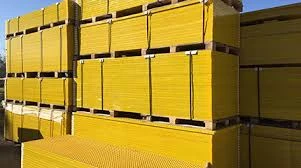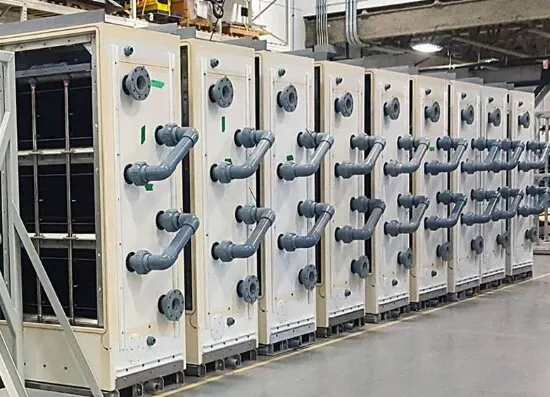
-
 Afrikaans
Afrikaans -
 Albanian
Albanian -
 Amharic
Amharic -
 Arabic
Arabic -
 Armenian
Armenian -
 Azerbaijani
Azerbaijani -
 Basque
Basque -
 Belarusian
Belarusian -
 Bengali
Bengali -
 Bosnian
Bosnian -
 Bulgarian
Bulgarian -
 Catalan
Catalan -
 Cebuano
Cebuano -
 China
China -
 China (Taiwan)
China (Taiwan) -
 Corsican
Corsican -
 Croatian
Croatian -
 Czech
Czech -
 Danish
Danish -
 Dutch
Dutch -
 English
English -
 Esperanto
Esperanto -
 Estonian
Estonian -
 Finnish
Finnish -
 French
French -
 Frisian
Frisian -
 Galician
Galician -
 Georgian
Georgian -
 German
German -
 Greek
Greek -
 Gujarati
Gujarati -
 Haitian Creole
Haitian Creole -
 hausa
hausa -
 hawaiian
hawaiian -
 Hebrew
Hebrew -
 Hindi
Hindi -
 Miao
Miao -
 Hungarian
Hungarian -
 Icelandic
Icelandic -
 igbo
igbo -
 Indonesian
Indonesian -
 irish
irish -
 Italian
Italian -
 Japanese
Japanese -
 Javanese
Javanese -
 Kannada
Kannada -
 kazakh
kazakh -
 Khmer
Khmer -
 Rwandese
Rwandese -
 Korean
Korean -
 Kurdish
Kurdish -
 Kyrgyz
Kyrgyz -
 Lao
Lao -
 Latin
Latin -
 Latvian
Latvian -
 Lithuanian
Lithuanian -
 Luxembourgish
Luxembourgish -
 Macedonian
Macedonian -
 Malgashi
Malgashi -
 Malay
Malay -
 Malayalam
Malayalam -
 Maltese
Maltese -
 Maori
Maori -
 Marathi
Marathi -
 Mongolian
Mongolian -
 Myanmar
Myanmar -
 Nepali
Nepali -
 Norwegian
Norwegian -
 Norwegian
Norwegian -
 Occitan
Occitan -
 Pashto
Pashto -
 Persian
Persian -
 Polish
Polish -
 Portuguese
Portuguese -
 Punjabi
Punjabi -
 Romanian
Romanian -
 Russian
Russian -
 Samoan
Samoan -
 Scottish Gaelic
Scottish Gaelic -
 Serbian
Serbian -
 Sesotho
Sesotho -
 Shona
Shona -
 Sindhi
Sindhi -
 Sinhala
Sinhala -
 Slovak
Slovak -
 Slovenian
Slovenian -
 Somali
Somali -
 Spanish
Spanish -
 Sundanese
Sundanese -
 Swahili
Swahili -
 Swedish
Swedish -
 Tagalog
Tagalog -
 Tajik
Tajik -
 Tamil
Tamil -
 Tatar
Tatar -
 Telugu
Telugu -
 Thai
Thai -
 Turkish
Turkish -
 Turkmen
Turkmen -
 Ukrainian
Ukrainian -
 Urdu
Urdu -
 Uighur
Uighur -
 Uzbek
Uzbek -
 Vietnamese
Vietnamese -
 Welsh
Welsh -
 Bantu
Bantu -
 Yiddish
Yiddish -
 Yoruba
Yoruba -
 Zulu
Zulu
Jan . 20, 2025 16:03
Back to list
Large Size Field Tanks
Fiberglass trough covers have become essential in various industries, offering a robust, lightweight solution for protecting equipment and enhancing safety. With years of hands-on experience in the engineering field, I can attest to the unparalleled benefits of fiberglass trough covers in both industrial and commercial settings.
In the realm of expertise, my collaboration with manufacturers and suppliers over the years has underscored the importance of product quality and supplier reliability. Working with reputable companies that adhere to stringent quality controls ensures that fiberglass trough covers meet all necessary safety and performance standards. A robust supply chain with transparent practices strengthens trust and reliability, critical factors in maintaining operational integrity and customer satisfaction. Authority in the market often stems from a product's versatility and capacity to innovate. Fiberglass trough covers are no exception; their adaptability to various climates and conditions showcases their superiority. Whether used in chemical plants, food processing facilities, or water treatment plants, these covers withstand demanding environments, reducing the risk of operational disruptions. Finally, trustworthiness is a cornerstone in any industry relationship. My commitment to recommending fiberglass trough covers is backed by decades of positive outcomes observed in various projects. Clients consistently report satisfied performance, reliability, and return on investment. Offering warranties and technical support further establishes the trust needed for long-term partnerships and ensures clients feel supported and valued. To sum up, the fiberglass trough cover is not merely a product but a strategic solution that enhances efficiency, safety, and sustainability. As industries continue to evolve, embracing materials that provide comprehensive benefits while meeting high standards of quality and environmental responsibility is imperative. Those investing in fiberglass trough covers are not only choosing a product but a future-proof strategy that promises enduring value and performance.


In the realm of expertise, my collaboration with manufacturers and suppliers over the years has underscored the importance of product quality and supplier reliability. Working with reputable companies that adhere to stringent quality controls ensures that fiberglass trough covers meet all necessary safety and performance standards. A robust supply chain with transparent practices strengthens trust and reliability, critical factors in maintaining operational integrity and customer satisfaction. Authority in the market often stems from a product's versatility and capacity to innovate. Fiberglass trough covers are no exception; their adaptability to various climates and conditions showcases their superiority. Whether used in chemical plants, food processing facilities, or water treatment plants, these covers withstand demanding environments, reducing the risk of operational disruptions. Finally, trustworthiness is a cornerstone in any industry relationship. My commitment to recommending fiberglass trough covers is backed by decades of positive outcomes observed in various projects. Clients consistently report satisfied performance, reliability, and return on investment. Offering warranties and technical support further establishes the trust needed for long-term partnerships and ensures clients feel supported and valued. To sum up, the fiberglass trough cover is not merely a product but a strategic solution that enhances efficiency, safety, and sustainability. As industries continue to evolve, embracing materials that provide comprehensive benefits while meeting high standards of quality and environmental responsibility is imperative. Those investing in fiberglass trough covers are not only choosing a product but a future-proof strategy that promises enduring value and performance.
Next:
Related Products
Latest news
-
Exploring the Benefits of Top Hammer Drifter Rods for Enhanced Drilling PerformanceNewsJun.10,2025
-
High-Precision Fiberglass Winding Machine for GRP/FRP Pipe Production – Reliable & Efficient SolutionsNewsJun.10,2025
-
FRP Pipes & Fittings for Shipbuilding - Corrosion-Resistant & LightweightNewsJun.09,2025
-
Premium FRP Flooring Solutions Durable & Slip-ResistantNewsJun.09,2025
-
Premium Fiberglass Rectangular Tanks Durable & Lightweight SolutionNewsJun.09,2025
-
Tapered Drill String Design Guide Durable Performance & UsesNewsJun.09,2025









